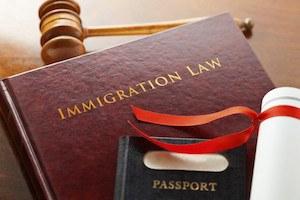REPRESENTATION
Results You Need.

After graduation from college and/or completion of a F-1 or J-1 program, many foreign citizens want to continue to reside and work in this country instead of returning home. One potential solution for such a foreign citizen is to obtain H-1B status, which allows him or her the ability to continue to live and work in the United States for up to a total of 6 years. H1-B visas are a way for businesses to obtain needed talent to fill open job positions, due to a shortage of available US workers to fill the job vacancy. Many (but not all) of these foreign workers in the science, technology, engineering, and mathematics fields; H1-Bs are not limited to STEM fields and can apply to a variety of different professional and skilled job positions.
The H-1B petitioner must prove in his or her application that: the job is a “specialty occupation”, which means that the entry level educational requirement is at least a bachelor degree in related fields; the foreign citizen worker qualifies as a professional; and that Labor Condition Application (LCA) is certified by the United States Department of Labor. However, the foreign citizen, who does not have an advanced degree, may substitute work experience to compensate for the missing educational requirement in some instances.
When it comes to hiring foreign citizens to lawfully work for a business in the United States, the US federal government has a clear policy to attempt to protect United States workers from foreign competition. Employers are prohibited from undercutting the job market with cheap labor willing to work for less than a US worker, and must pay the foreign citizen the higher of the actual (the wage paid to other workers in similar positions) or the prevailing wage (the average salary for workers in the relevant area of employment. The wage information obtained through a State economic agency where the prospective employment is located if the H1-B is approved and from other sources). The employer of the foreign worker, in addition to paying the higher of the actual or prevailing wage, must attest on the LCA that the employment of the H1-B worker will not negatively affect the working conditions and wages of similarly employed United States workers AND the employer must even notify existing workers with notice of the employer’s intention to hire an H1-B worker.
The foreign citizen’s H1-B petition is submitted to the USCIS, which is the government agency in charge of reviewing, processing, and adjudicating all H1-B petitions. There are limitations under US law as to the number of H1-Bs that will be approved each year (an “H1-B cap”), which is often reached within days after the beginning of the petition submission period. Therefore, the H1-B petition must be filed early enough (as soon as application can be submitted) to give the foreign citizen a chance to obtain an H1-B visa before the slots are filled by other foreign citizens. Recently, the number of H1-B petitions submitted to fill US job positions greatly exceeded the number of H1-B visa which are available under the “H1-B cap”. A “H1-B lottery” is implemented when the applications out number the available slots to determine which applications will be processed, and which ones will be rejected. One caveat when considering H1-B applications is that is that H1-B visas for for foreign citizens at research institutes, hospitals, educational facilities, and non-profit organizations are often H1-B cap exempt, which allows employers to petition the prospective employee at any time during the year.
There are potentially thousands of dollars in governmental filing fees for H1-B applications, in addition to the necessary cost of the immigration lawyer handling the case (the government filing fee is returned if the applicant is rejected; the attorney fee, however, is not returned because the legal service was performed). In most (but not all) instances the employer of the foreign citizen is required to fully pay these governmental filing fees.
The H1-B visa holder is allowed to have dual intent, meaning that he or she can intend to remain in the United States for either a temporary or permanent length of time. Many foreign citizens who receive an H1-B visa eventually apply to adjust their status to obtain Lawful Permanent Residency, provided that an employer is willing to file an employment based green card application to sponsor the foreign worker.
A talented and respected H1-B immigration lawyer, such as Sufen Hilf, to is recommended handle any and all H1-B petitions for a variety of reasons: first, Immigration laws are constantly subject to modification and change, and you need someone who is up to date on changes in law and policy; second, there are a number of situations that are more heavily scrutinized (for example: third party placement; positions at lower wage levels; H1-B visa transfers; positions that have low qualification or skill requirements; students on F-1 visas and OPT seeking a H1-B visa; etc.) which should be handled by a lawyer; third, there are many technical components to filing the H1-B petition, such as correctly completing and filing the petition, accurately providing prevailing wage information, responding to a Request for Evidence, etc. that also require a competent immigration lawyer’s representation; fourth, having someone to answer questions and provide information concerning the file is an important and stress reducing part of the process. For any immigration related issues you should immediately contact Hilf & Hilf, PLC for excellent legal representation from highly regarded legal professionals.